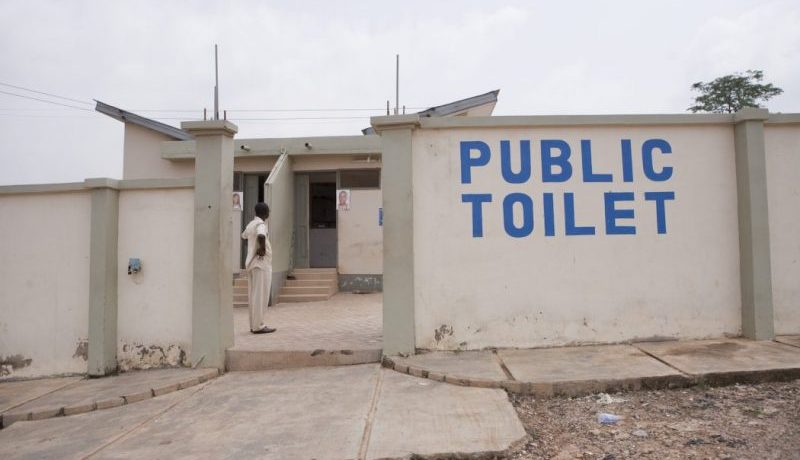TALKING TOILETS
By Femi Olugbile
It is time to take a break from all the heavy stuff. Time to talk about – yes, toilets.
A subject hardly worth bothering about, according to the conventions of most of the indigenous cultures of Nigeria. Discussing toilets is unseemly, even rude, in the eyes of some of the gatekeepers of social convention and appropriate behaviour.
It is easy to discern the deeply ingrained attitude even in those who believe themselves ‘enlightened’ or ‘exposed’. In most private homes in Nigeria, the toilet is the least clean and most unserviceable part of the habitation. Something is invariably broken, or something is missing. The seat is cracked, or askew. Or something is leaking. Oh, or the water does not flow, even if it is running through the rest of the house. The visitor’s request to use ‘the small room’, or, for the more Americanised, ‘the bathroom’, is immediately attended by the host’s anxiety and a preemptive apology concerning what ‘those children’ might have done there.
At least most homes nowadays have ’proper’ toilets. it has not always been so. In the traditional Yoruba household, the toilet was ‘the back of the house’, functionally and geographically.
A glimpse of the not-too-distant past of Lagos is discernible from your own childhood recollections of school holidays spent with Iya Onipanla, your grandmother, at her home in Isalegangan, opposite Onola playground. At a particular time of the evening, a terrible odour would pervade the atmosphere as a hooded figure carrying a large container made his way to toilets house-to-house to cart away the bodily effluents of the households on the street. As the children dashed indoors, holding their noses and trying not to laugh, they would be confronted with the stern gaze of Iya Onipanla sitting at her familiar location just within the door. Not by a sound or the merest gesture were they allowed to disrespect the nightsoil-man as he went about his duties. Not only was it bad behaviour, but it could also make the man decide to boycott the household. It was common knowledge that the household buckets were emptied into trucks, which were then emptied into the Lagos lagoon.
The much derided but extremely important job of the ‘agbepo’ has now been written out of history. By government regulation, residential homes are required to have functional toilets.
Nigeria is not the worst place in the world concerning the cultural and social conventions surrounding toilets. That distinction may well belong to India. Many foreign observers were stunned when the government of Prime Minister Narendra Modi declared that making sure Indians had good toilets in every home was a key objective of the administration. It emerged that 344 million Indians had no regular access to toilets.
Toilets, far from being a subject of no social or other importance, are actually a great barometer of civilization, like the availability of potable water, and a major reflection of the quality of life of any individual or society. In the most advanced societies, the standard form is not just to have ‘flush’ toilets, but to have the waste from individual homes channeled into a centralized sewage system.
No Nigerian city has a functional central sewage system. The Abuja Masterplan vaguely had an intention to create one, but it never took off. Household effluent currents channeled from houses located in Victoria Island and Okokomaiko have one thing in common. They lead nowhere. Ultimately, they end up back on the street, and in the water that the people drink, and in the food that they eat. Cholera, typhoid fever and all manner of disease vulnerabilities arise. Despite some recent progress, Nigeria still has one of the highest infant mortality rates in the world, and a lot of the deaths are due to diarrhoeal diseases caused by infections.
On the cultural plane, apart from the dirty, broken, waterless toilets in homes and public places, including Ministries, government secretariats and airports, there is hand-wringing and embarrassment about the visuals. Some people pronounce themselves offended by the sight of people urinating at the roadside. A song and dance was made in the social media recently about a European diplomat caught in a picture urinating near his car. He wouldn’t dare do that in his own country, some said in outrage. The truth, of course, was that he wouldn’t have needed to do that in his country. The real question was – where were the public toilets?
Having functional public toilets in every Ward is part of the Lagos Resilience plan, according to public documents. Beyond that, the public must become effective stakeholders and participants in a process of behaviour change. Every commercial entity, every eatery, every petrol station, every place where the public gather must have functional, accessible toilets.
The psychology of expectation, manning and usage of toilets must change too. No, it is not ‘a small room’ or ‘at the back of the house’. It is a window on the aesthetics and culture of the household and the business. Only the better hotels and the most finicky households currently have good toilets. The airports and malls like Shoprite get it wrong – they ‘privatize’ the manning of their toilets and turn them into waterlogged irritations with broken this and leaking that, where untrained, unsupervised ‘attendants’ dole out toilet paper that should be wall-mounted to embarrassed clients while their body language makes it clear they expect to be ‘tipped’.
As Prime Minister Modi continues his battle to put a toilet in every Indian home, it is appropriate that Nigeria, led by Lagos, should embark on a deliberate journey to review and revamp its toilet culture and reevaluate the position of the toilet – including its rituals, its visuals, its appurtenances and its consequences in their lives. Having more public toilets is only a start. Persuading the public to treat the toilet as the window to the home or office, and the guarantor of everyone’s health, will be a good next step on the journey.

